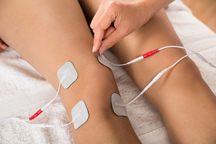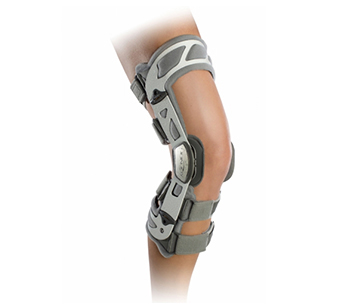Pain and injury can happen to anyone. Most people have at least one injury or episode of pain in their lifetime. As a result, this leads them to seek professional help. The most common types of injuries are related to muscle, bone and joints. However, underlying diseases can also result in pain that leads people to seek Physiotherapy & Exercise.
What are the different types of
Physiotherapy & Exercise available?
- Physiotherapy
- Physiotherapists use their knowledge of the body to provide Physiotherapy & Exercise treatment. In addition, they assess, diagnose and treat symptoms from injuries.
- Massage Therapy
- Massage therapy is the manipulation of soft tissues. For example: muscles, connective tissues, tendons, ligaments and joints.
- Massage therapy reduces pain associated with everyday stressors. For example, muscular over-use and chronic pain conditions.
- Osteopathy
- Osteopathy views the body as a unit. Above all, they believe that healthy tissues require proper circulation of our body’s fluids
- Osteopaths use hands on treatments to assess and restore balance through our body’s systems. For example: musculoskeletal, cardiovascular and neurological,
Different Types of Physiotherapy & Exercise
There are many Physiotherapy & Exercise options to help with recovery from an injury. For example:

- Manual therapy
- Soft tissue releases
- Joint mobilizations
- Joint manipulations
- Passive stretching
- Electrical modalities
- Ultrasound
- Laser
- Interferential Current
- TENS
- Shockwave
- Decompression therapies
- Mechanical lumbar traction
- Mechanical cervical traction
- Inversion tables
- Alternative treatments
- Acupuncture
- Cupping
- Supportive products
- Braces
- Taping

How do I know what treatment is right for me?
It is hard to choose what kind of treatment to try. In other words, deciding what would be most effective for treating your pain. This is especially true if this is your first time experiencing an injury and/or pain.
A lot of people end up trying what they are familiar with. For example, if you have had previous injuries and had Physiotherapy & Exercise for those injuries, you would know what worked. There is a personal preference regarding which Physiotherapy & Exercise treatments work best for us.
What Physiotherapy & Exercise provides the best overall results?

The one type of treatment that is the most beneficial is Physiotherapy & Exercise. This is mainly because our bodies are built to move. There is truth in the saying, “If you don’t use it, you’ll lose it.”
Exercise has positive results for almost all injuries . The type of Physiotherapy & Exercise that is best will depend on the injury. There is no universal approach to exercise that works for everyone. This is because we are all built differently. However, what works for one person doesn’t mean it will work for another.
What type of exercises are most beneficial?
- Muscle and bone injuries will require some form of mobility. Most importantly, progressive strengthening exercises.
- Nervous system diseases such as strokes or Parkinson’s Disease will require more balance and functional exercises.
- Respiratory illnesses like COPD or emphysema will need exercises that improve and strengthen the muscles of breathing and posture
- Concussion rehabilitation will need visual and vestibular re-training exercises.
- Conditions such as diabetes, cancer, cardiovascular disease, autoimmune conditions need a combination Physiotherapy & Exercise. Therefore, cardiovascular and strengthening exercises have been shown to be most effective in managing their condition.
Which healthcare professional can prescribe Physiotherapy & Exercise?
It is up to the health care professional to assess your condition and prescribe the correct exercises for you. Registered Physiotherapists are experts in the assessment of all types of injuries. They will be able to give the most appropriate treatment for you. As a result, there is always a strong emphasis on exercise and promoting activity.
A Physiotherapist will be able to develop a specific exercise program for you. They will factor in your age, fitness level and ability to do the exercises at home. The physiotherapist will be able to guide you with adding exercises into your routine so that it becomes a habit.
Why is exercise therapy an important part of treatment?
A lot of times, people who are inactive think that exercise therapy refers to working out in a gym. Exercise therapy can refer to any exercise that you enjoy doing. For example: stretching, riding a bike, swimming, yoga and lifting weights.
Pain or Fear of Injury
If pain or fear of injury is preventing you from exercise, seeing a Physiotherapist can help get the process started. Firstly, a Physiotherapist can assess where the source of the pain or weakness is coming from. Secondly, they start giving the most appropriate exercises to overcome those restrictions.
Subsequently, with effort, consistency and time, you can see the difference that exercise therapy can provide. As a result, this will lead you to include activity into your everyday life. Feeling confident with your progress will help lead you to seek out similar active programs in your community.
In Conclusion
Exercise should always be a part of the treatment plan. With an aging population, there needs to more emphasis placed on Physiotherapy & Exercise. As a result, this will prevent weakness related to ageing and frailty. Strength and ongoing exercise will allow you to maintain your function and independence as you age.
If you or someone you know would benefit from Physiotherapy & Exercise, please call today. At PhysioNow Mississauga and PhysioNow Etobicoke, we are ready to help!


